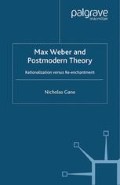Abstract
On International Women’s Day in 1942, Anna Akhmatova’s famous poem appeared in the pages of Pravda.1 It was, of course, part of the increasingly traditional call to all Russians to the defense of their homeland, here imagined not as a territory or a population, but as a language, the ‘great Russian word’. Akhmatova’s appeal, published on the day in the Soviet calendar devoted to the celebration of women, addressed both women and men, evoking in its few short lines the awesome disasters threatening those on the battlefield and those in the rear. Yet this poem (perhaps especially in this translation) can potentially be misconstrued if the masculine is not read back into it. The title, of course, relies on that Russian word for ‘courage’ derived from the root for ‘man’ (muzh-’) and in the poem itself muzhestvo beats solemnly not once (as in this version) but twice, in its third and fourth lines.2 If this English rendering conveys the sacrifice of life at both the front and the domestic rear with its falling ‘housetops’, the original was more ambiguous, referring not at all to houses under siege but only to those Russians ‘lying dead under bullets …[and] left drained of blood’.3 While Akhmatova’s intention was no doubt to include women here as victims of a merciless total war, one might ask if some readers would have imagined soldiers at the front as the chief sacrifice hailed in these lines.
We know what trembles on the scales, and what we must steel ourselves to face. The bravest hour strikes on our clocks: may courage not abandon us! Let bullets kill us — we are not afraid, nor are we bitter, though our housetops fall. We will preserve you, Russian speech, from servitude in foreign chains, keep you alive, great Russian word, fit for the songs of our children’s children pure on their tongues, and free.
‘Courage’ (Muzhestvo), translated by Stanley Kunitz with Max Hayward
Access this chapter
Tax calculation will be finalised at checkout
Purchases are for personal use only
Preview
Unable to display preview. Download preview PDF.
Notes
See Anna Akhmatova, Sochineniia v dvukh tomakh (Moscow, 1986), 1: 199, 422. This translation is from Anna Akhmatova, Selected Poems, trans. Stanley Kunitz with Max Hayward (London, 1989), 125.
Sergei Aksakov, A Russian Schoolboy (Oxford, 1983), 128.
For an argument that the extreme dysfunctionality of the old regime’s divorce and separation system ‘fueled widespread disenchantment and alienation, even among believers’, see Gregory L. Freeze, ‘Krylov vs. Krylova: “Sexual Incapacity” and Divorce in Tsarist Russia’, The Human Tradition in Modem Russia, ed. William B. Husband (Wilmington, Del., 2000), 16–17.
Not that Russians were the only men who preened themselves over their uniforms, or sought to join a particular regiment because they found its uniform flattering. See Joanna Bourke, Dismembering the Male: Men’s Bodies, Britain and the Great War (London, 1996), 171–209.
On the ‘fortuitous political expediency’ that facilitated the mythologization of Wilde as ‘a saintly sufferer’, see Evgenii Bershtein, ‘The Russian Myth of Oscar Wilde’, Self and Story in Russian Histoty, ed. Laura Engelstein and Stephanie Sandler (Ithaca & London, 2000).
On the resistance of Russia’s doctors to the pathologization of sexual ‘per-version’ see Laura Engelstein, The Keys to Happiness: Sex and the Search for Modernity in Fin-de-Siècle Russia (Ithaca & London, 1992), 152–64.
For a discussion of the structural reasons for Russian medicine’s resistance to this western trend, see Dan Healey, Homosexual Desire in Revolutionary Russia: the Regulation of Sexual and Gender Dissent (Chicago, 2001).
For an expression of this tripartite geography of perversion positing Russia’s natural sexual innocence, see G. S. Novopolin, Pomograficheskii element v russkoi literature (St Petersburg, 1909), 169. The failure of sexological discourses of perversion to operate as in the West when introduced in Russia has been ascribed to their quick politicization by left and right;
see Evgenii Bershtein, “Psychopathia sexualis” v Rossii nachala veka: politika i zhanr’, Eros i pornografiia v russkoi kul’ture/Eros and Pornography in Russian Culture, ed. M. Levitt and A. Toporkov (Moscow, 1999), 436.
In American YMCA clubs between 1900 and the 1920s ‘all physical touch between men … was being sexualized to some extent’ and thus was increasingly fiercely policed; John D. Gustav-Wrathall, Take the Young Stranger by the Hand: Same-Sex Relations and the YMCA (Chicago, 1998), 140–57.
Nikolai Krylenko, ‘Ob izmeneniiakh i dopolneniiakh kodeksov RSFSR’, Sovet-skaia iustitsiia, 15, no. 7 (1936), 3–4; Krylenko was an avid promoter of zakal, sponsoring the development of Soviet mountaineering and hunting; see Donald D. Barry, ‘Nikolai Vasil’evich Krylenko: a Re-evaluation’, Review of Socialist Law, no. 2 (1989), 131–47.
For this line of reasoning, see Sergei Kukhterin, ‘Fathers and Patriarchs’, Gender, State and Society in Soviet and Post-Soviet Russia, ed. Sarah Ashwin (New York, 2000).
Editor information
Editors and Affiliations
Copyright information
© 2002 Rebecca Friedman and Dan Healey
About this chapter
Cite this chapter
Friedman, R., Healey, D. (2002). Conclusions. In: Clements, B.E., Friedman, R., Healey, D. (eds) Russian Masculinities in History and Culture. Palgrave Macmillan, London. https://doi.org/10.1057/9780230501799_13
Download citation
DOI: https://doi.org/10.1057/9780230501799_13
Publisher Name: Palgrave Macmillan, London
Print ISBN: 978-1-349-42592-1
Online ISBN: 978-0-230-50179-9
eBook Packages: Palgrave Social & Cultural Studies CollectionSocial Sciences (R0)

